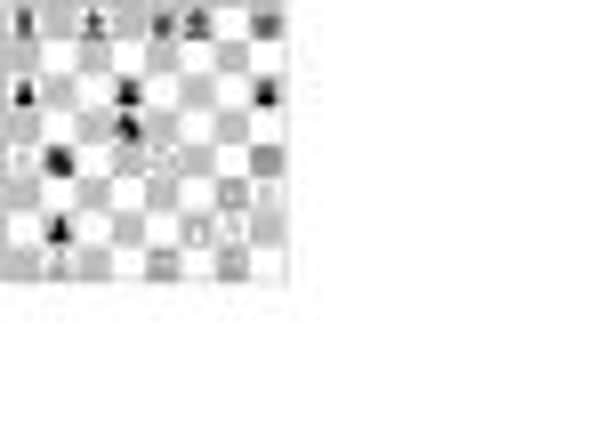Chess - 01/12/2011


TWENTY years ago in December, as the world watched in amazement, the Soviet Union disintegrated into 15 separate countries. And with its breakup came the decline in Russian/Soviet supreme dominance of chess.
Just a few months before the collapse, in the summer of 1991, a series of chess games tipped Mikhail Gorbachev off that a military coup was being hatched. He noticed that several high-ranking members of the Soviet old guard in his Politburo were meeting regularly “to play chess.” The players, led by KGB chief Vladimir Kryuchkov, were planning to overthrow him.
Advertisement
Hide AdAdvertisement
Hide Ad“Chess was just the cover story for their meetings,” Gorbachev said in a recent interview for the Russian WhyChess Web site. He recalled that he was an avid player himself and played “nonstop” as a teen. But “chess demands a great deal of time”, he said, adding that, like Vladimir Lenin before him, he gave it up for politics.
Gorbachev’s tenure in the Kremlin coincided with the bitter world championship rivalry of Anatoly Karpov and Garry Kasparov. He said he rooted for Karpov, and today he doesn’t like Kasparov’s politics: “He’s too radical, in my view – the radical right.” While he may not like his politics, and he rooted for Karpov, Kasparov at the chessboard during the period from 1984-91 was simply a force of nature – the likes of which we hadn’t seen since the days when Bobby Fischer was in his prime.
G Kasparov - A Karpov
World Championship, 1990
Ruy Lopez, Zaitsev variation
1 e4 e5 2 Nf3 Nc6 3 Bb5 a6 4 Ba4 Nf6 5 0-0 Be7 6 Re1 b5 7 Bb3 d6 8 c3 0-0 9 h3 Bb7 10 d4 Re8 11 Nbd2 Bf8 12 a4 h6 13 Bc2 exd4 14 cxd4 Nb4 15 Bb1 c5 16 d5 Nd7 17 Ra3 f5 18 Rae3 Nf6 19 Nh2 Kh8 20 b3 bxa4 21 bxa4 c4 22 Bb2 fxe4 23 Nxe4 Nfxd5 24 Rg3 Re6 25 Ng4 Qe8 26 Nxh6 c3 27 Nf5 cxb2 28 Qg4 Bc8 29 Qh4+ Rh6 30 Nxh6 gxh6 31 Kh2! Qe5 32 Ng5 Qf6 33 Re8 Bf5 34 Qxh6+ Qxh6 35 Nf7+ Kh7 36 Bxf5+ Qg6 37 Bxg6+ Kg7 38 Rxa8 Be7 39 Rb8 a5 40 Be4+ Kxf7 41 Bxd5+ 1-0